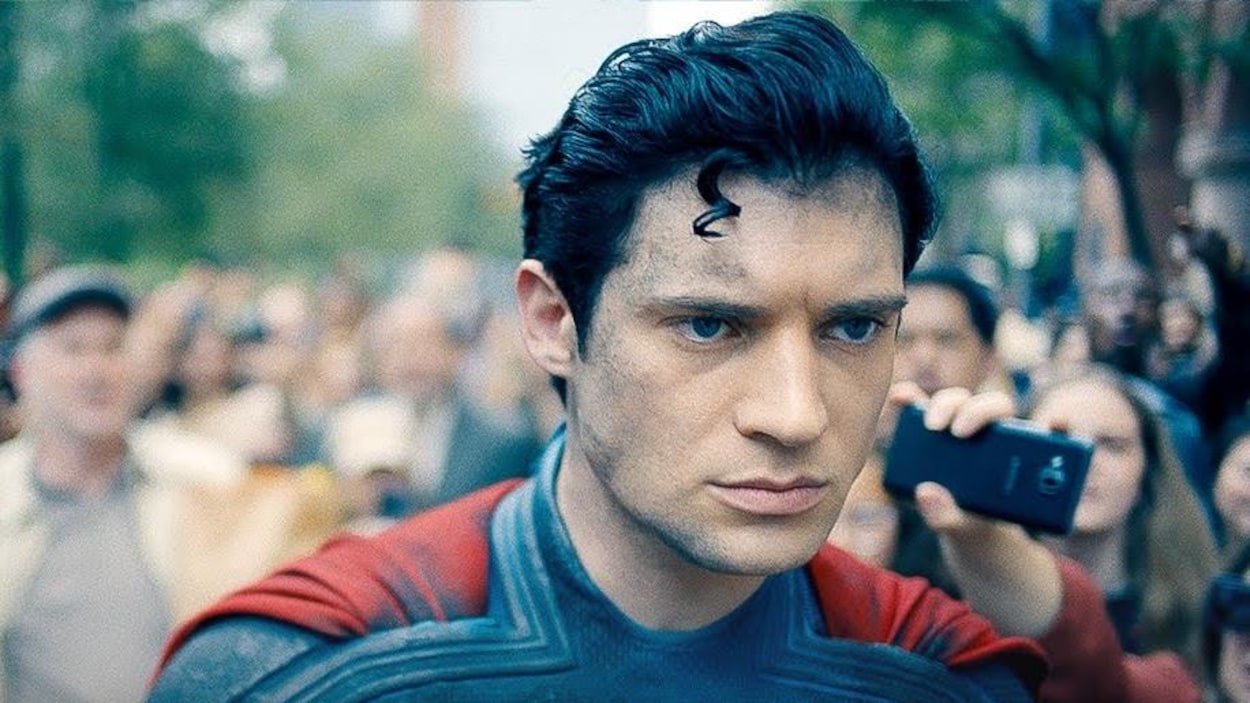PROTECT YOUR DNA WITH QUANTUM TECHNOLOGY
Orgo-Life the new way to the future Advertising by Adpathway
Daniel Brown is a member of Alex Formenton's defence team.
(Alexandra Newbould/CBC)
- The sexual assault trial that began in late April for five former Hockey Canada world junior players continues today in Ontario Superior Court in London.
- Defence lawyers for the accused men are making closing arguments.
- Yesterday, counsel for Michael McLeod and Carter Hart questioned the credibility of testimony from the complainant, E.M., and suggested there’s no evidence she was coerced into sexual acts.
- The Crown will have a chance to respond to defence submissions during its own closing arguments.
- All five accused men — McLeod, Hart, Dillon Dubé, Alex Formenton and Cal Foote — have pleaded not guilty to alleged sexual assaults at a hotel in June 2018.
- WARNING: Court proceedings include graphic details of alleged sexual assault and might affect those who have experienced sexual violence or know someone who's been affected.
12 minutes agoKate Dubinski
Brown says that when E.M.’s mom found her crying in the shower, E.M. realized she needed to tell a story about people doing “bad things” to her, rather than “take responsibility for the bad choices she made.”
Brown argues E.M. wanted to save her relationship with her boyfriend, and knew the men were hockey players and if the story came out, there would be public shaming.
“She created a lie and the lie was that she didn’t make the choice willingly to leave the bar and go to the hotel with Mr. McLeod. If the choice wasn’t hers, if it was someone else’s fault, if she was sexually assaulted, she could be absolved of her conduct.”
However, Brown says, E.M. didn’t know there were videos that didn’t match her story.
When the police detective (now-retired London police sergeant Stephen Newton) tells her that he can’t lay charges because the hotel video shows her not too drunk to consent, “her quest for justice is just starting. She wants money. She wants a lot of money. She wants $3.5 million. She doubles down.”
(Hockey Canada eventually settled the civil lawsuit brought by E.M., without telling the players involved, for an undisclosed amount of money).
Brown argues that E.M. shifted her narrative in her Hockey Canada statement, to include that she was drunk and the players knew it, and they were forcing drinks down her throat.
He says her whole story is a lie.
21 minutes ago
Brown puts to the judge that sometimes, consensual sex is regrettable later, especially when there’s a lot of alcohol involved.
But the sexual activity that happened on the night in question in June 2018 — even if it was unusual, unenjoyable or regrettable — was not non-consensual.
“We have lots of evidence that she was consenting and only her version that she wasn’t,” Brown says.
He says there are four “states of mind” described by E.M., and he will go through each:
- She was too drunk to consent.
- Her mind and body separated and she was on autopilot, an automaton.
- Through fear and terror, she did things she didn’t want to do.
- She is a people pleaser who was socially pressured to have sexual activity she didn’t want.
Brown contends a fifth mental state — “EM was enthusiastically consenting to what was happening in Room 209” — is the one that’s true.
31 minutes ago
Brown refutes E.M.’s testimony
Defence lawyer Dan Brown, left, questions E.M. by video earlier in the trial. Justice Maria Carroccia is on the right. (Alexandra Newbould/CBC)
E.M. was not a reliable witness, Brown says.
He lists what E.M. testified to, but then says videos prove these otherwise: that the players got her drunk, she was so drunk she was out of it, she was separated from her friends by the players, she had no opportunity to escape from McLeod at the bar, and no one checked in on her during that night.
“None of the witnesses corroborate the oppressive atmosphere that E.M. says existed in the room,” Brown says.
“Consent to sex with a stranger is still consent. Consent while drunk is still consent. Consent to sex by one woman with more than one man is still consent.”
33 minutes ago
Next up: Alex Formenton’s lawyer, Dan Brown
The third defence lawyer to deliver closing arguments is Dan Brown, lawyer for Formenton, who court has heard had sex with E.M. in the bathroom.
He argues what happened between E.M. and his client isn’t “complicated.”
“She repeatedly asked for someone to have sex with her and Mr. Formenton agreed to do so,” Brown says. “He did this because she wanted to have sexual intercourse and he wanted to have sex. They both agreed.”
36 minutes ago
‘It takes one to know one,’ but not for a witness, Savard argues
Megan Savard, defence lawyer for Carter Hart, speaks during her closing argument. (Alexandra Newbould/CBC)
Savard says E.M.’s testimony evolved from feelings to facts.
“She feels an event is non-consensual, but then testifies to an internal state of mind that is more consistent with regret than consent. She feels she is on autopilot, then testifies to facts that show conscious choice and agency,” Savard says.
Hart’s lawyer gives an example of testimony about the size of drinks at Jack’s bar.
E.M. testified she feels the drinks there are no different than other drinks, Savard points out.
“She testified, ‘I’ve never thought they had smaller drinks than anywhere else. That’s my fact.’”
There’s no difference between “a fact” and “the facts” for E.M., Savard contends, and it’s evident throughout her testimony.
E.M. has “revisionist tendencies,” and changes her story over the last seven years to “pivot when she’s confronted with new hurdles and new bad facts. And it takes one to know one. That is a job we commonly do as lawyers. But it is not something a witness should be doing.”
Savard has now wrapped up her closing arguments.
51 minutes ago
Hart’s lawyer gets court started by arguing E.M. had ‘an agenda’
Megan Savard says she has about 10 more minutes of closing arguments.
She says she wants to answer a question that Justice Maria Carroccia asked McLeod’s lawyer, David Humphrey, yesterday, about whether or not it is normal for a person to come to court with a goal or agenda in mind.
“Generally, not this much of an agenda,” Savard says. “There’s a difference between hoping for an outcome but nonetheless trying to be careful, objective and a non-advocate, so to speak, versus actively trying to advance an agenda, and it is the latter that we are dealing with here, and that is a credibility problem.”
The way E.M. testified obscures what she did, how she felt, what others did, and how and why she changed her account, Savard tells Carroccia.
“The goal is to obscure because this witness knows that the truth will not serve her agenda, which is to see her not in consent,” Savard says.
Savard calls E.M. “deliberately slippery” in how she gave her testimony, and gives some examples from E.M.’s testimony.


 1 month ago
4
1 month ago
4










 English (US) ·
English (US) ·  French (CA) ·
French (CA) ·  French (FR) ·
French (FR) ·